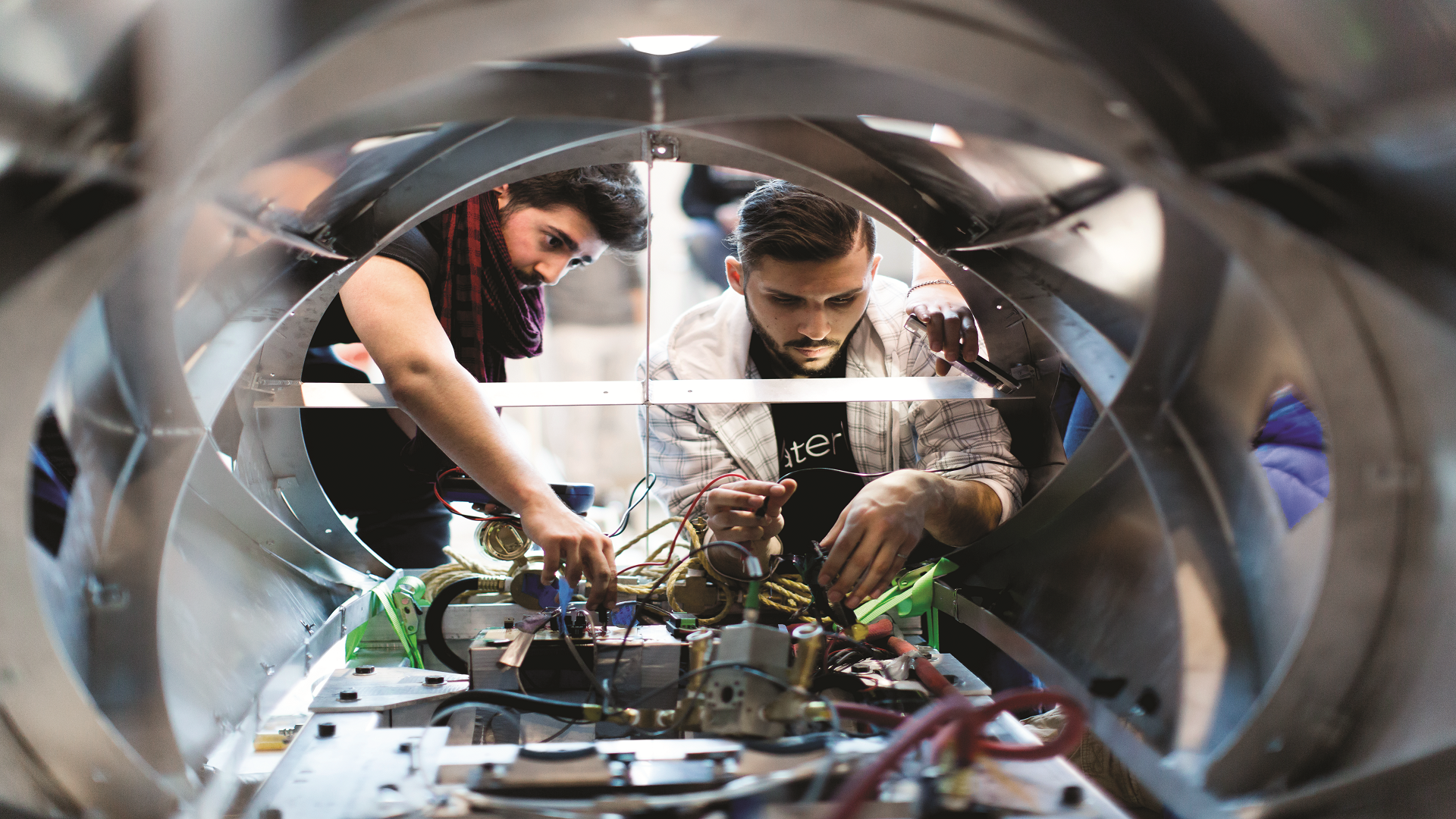The global energy transition runs on batteries. From powering EVs to storing renewable energy, batteries offer a clean and scalable solution to reduce emissions. And in Canada, battery innovation begins in Waterloo.
Battery innovation is not new to Canada. We produced the world’s first commercial rechargeable lithium battery in the 1980s. And today, our researchers across Canada are pushing the boundaries of what’s next: from solid-state batteries to beyond-lithium chemistries.
Ontario Battery & Electrochemistry Research Centre (OBEC) at the University of Waterloo, is a one-of-its-kind battery research hub bridging the gap between academic discovery and real-world impact. Co-led by University of Waterloo’s Dr. Linda Nazar, Canada Research Chair in Solid State Energy Materials and Professor in the Department of Chemistry and Dr. Michael Pope, Associate Professor Department of Chemical Engineering, the lab is doing groundbreaking research to develop cleaner and more sustainable energy technologies.
We talked to Dr. Nazar and Dr. Pope to gain an inside look at the battery research happening in Waterloo.
Key Takeaways
-
OBEC at the University of Waterloo is a leading hub for next-generation battery innovation, advancing solid-state and beyond-lithium technologies
-
The facility provides the infrastructure and expertise researchers and businesses need to prototype and scale new battery solutions for EV and clean energy applications
-
Waterloo’s strong innovation ecosystem, IP-friendly framework and deep battery research expertise make it an ideal location for battery startups and industry investment
The need for next-gen batteries
The global battery industry is becoming a key economic driver, poised to power the future of the automotive and energy sectors.
Lithium – the key ingredient in most batteries today – is facing a potential global supply shortage, as soaring demand for the EV market outpaces production. This growing imbalance necessitates the urgency to develop next-gen batteries that can deliver safer, longer-lasting and more affordable energy storage, using materials that are more readily available.
At OBEC, researchers are rising to this challenge by finding new chemistries and testing new prototypes. “OBEC is building a state-of-the-art facility for next-generation battery technologies, with a focus on solid-state batteries and beyond-lithium chemistries,” shared Dr. Pope. “We’re helping bridge the gap between academic research and large-scale industry.”
" The University of Waterloo is really a centre of expertise in electrochemistry and battery areas. We also have strong capabilities in advanced manufacturing and nanotechnology, which are also inherently important for the battery industry. "
Dr. Linda Nazar
Canada Research Chair in Solid State Energy Materials and Professor in the Department of Chemistry at University of Waterloo
OBEC’s role in Canada’s battery innovation
With Canada’s commitment to net-zero emissions by 2050, developing a strong battery industry is essential, and OBEC is playing a key role by advancing next-gen battery technologies, training talent and bridging academia with industry.
While Dr. Nazar’s team focuses on developing new chemistries for solid-state batteries, Dr. Pope’s team works on processing and integrating these materials into scalable battery solutions. “We’re exploring technologies like lithium-sulfur, sodium-sulfur, sodium-ion and even magnesium-ion batteries,” noted Dr. Nazar.
OBEC provides researchers, startups and businesses with the infrastructure and resources to prototype and test new battery technologies, helping accelerate next-gen battery development and strengthen Canada’s position in the global clean energy sector.
“Some of the most challenging developments in battery research require significant capital and infrastructure,” shared Dr. Pope. “That’s where OBEC can make a real difference – by providing access to advanced equipment and facilities that are often out of reach for startups. Our goal is to help facilitate that development and continue expanding our infrastructure to support even more innovation in the future.”
Industry partnerships and talent development
The Centre aims to work closely with automakers, energy companies and other industry leaders to ensure that its impact translates to real-world solutions.
“With Waterloo’s strong startup culture and University of Waterloo’s creator-owned IP policy, we’re hoping to see more startups emerge that can work alongside major industry players,” shared Dr. Pope. “OBEC can play a role in facilitating those connections and helping to grow the next wave of battery innovation in Canada.”
Through these collaborations, OBEC is also training the next generation of highly skilled researchers and innovators ready to shape the future of the battery industry.
Why Waterloo is the right place for battery innovation
The Waterloo area has a long-standing reputation for excellence in research and development. One of the goals of OBEC, according to Dr. Nazar, is to facilitate businesses with infrastructure and lab resources needed to develop new battery chemistries.
“The University of Waterloo is really a centre of expertise in electrochemistry and battery areas,” emphasized Dr. Nazar. “We also have strong capabilities in advanced manufacturing and nanotechnology, which are also inherently important for the battery industry.”
By building on these existing strengths, OBEC is not only supporting cutting-edge research, but also helping spark the creation of new battery startups. “We’re positioned right in the middle of major industry activity. Combine that with Waterloo’s startup culture and IP-friendly environment, and we expect to see a wave of new battery startups and spinouts in the years ahead,” added Dr. Pope.
As the global race for clean energy and EV adoption accelerates, OBEC is uniquely positioned to equip researchers and businesses to drive technological breakthroughs and meaningful economic impact. With Waterloo’s innovation ecosystem as its foundation, OBEC is not only advancing battery science but also powering Canada’s transition to a cleaner, more sustainable future.
Our team can help you get there.
